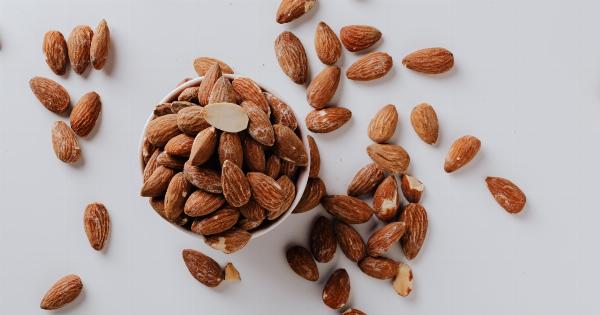Losing weight can be a challenging task, but it’s not impossible. One of the keys to successful weight loss is eating the right foods. While there’s no one-size-fits-all diet for everyone, some foods are known to help with weight loss.
Here are some of the best foods to eat when you’re trying to lose weight:.
1. Leafy Greens
Leafy greens such as kale, spinach, and broccoli are low in calories and high in nutrients. They’re also rich in fiber, which helps you feel full for longer periods and reduces your cravings.
Leafy greens are also a great source of vitamins and minerals that your body needs to function properly.
2. Whole Grains
Whole grains such as brown rice, quinoa, and oats are high in fiber and low in calories. They’re also a great source of complex carbohydrates that provide sustained energy throughout the day.
Whole grains also help regulate blood sugar levels, which can prevent overeating and weight gain.
3. Lean Proteins
Lean proteins such as chicken, fish, and turkey are low in calories and high in nutrients. They also help build lean muscle mass, which increases your metabolism and burns more calories.
Lean proteins are also a great source of energy and can help you stay full for longer periods, reducing your overall calorie intake.
4. Fruits and Vegetables
Fruits and vegetables are high in fiber, which can help you feel full for longer periods. They’re also low in calories and rich in vitamins and minerals.
Fruits and vegetables are also a great source of antioxidants that help protect your body from free radicals and improve overall health.
5. Nuts and Seeds
Nuts and seeds such as almonds, walnuts, chia seeds, and flaxseeds are high in protein, fiber, and healthy fats. They’re also low in calories and can help you feel full for longer periods.
Nuts and seeds are also a great source of vitamins and minerals that your body needs to function properly.
6. Legumes
Legumes such as lentils, beans, and chickpeas are high in fiber and protein. They’re also low in calories and fat, making them an excellent addition to any weight loss diet.
Legumes are also a great source of vitamins and minerals that your body needs to function properly.
7. Non-Caloric Beverages
Non-caloric beverages such as water, tea, and coffee are excellent choices when you’re trying to lose weight. They’re low in calories and can help you feel full, reducing your overall calorie intake.
These beverages also help hydrate your body, improve digestion, and boost metabolism.
8. Low-Fat Dairy Products
Low-fat dairy products such as milk, yogurt, and cheese are high in protein and calcium. They’re also low in calories and fat, making them an excellent choice for weight loss.
Low-fat dairy products can also help you feel full, reducing your overall calorie intake.
9. Spices and Herbs
Spices and herbs such as garlic, ginger, cayenne pepper, and cinnamon are excellent choices when you’re trying to lose weight. They add flavor to your food without adding calories, helping you reduce your overall calorie intake.
Spices and herbs also have various health benefits that help improve overall health.
10. Dark Chocolate
Dark chocolate is high in antioxidants and flavonoids, which can help improve heart health and reduce inflammation. It’s also low in sugar and calories when consumed in moderation.
Dark chocolate can also help reduce cravings and satisfy your sweet tooth, making it an excellent snack for weight loss.
Conclusion
Eating the right foods is crucial for successful weight loss. Incorporating these foods into your diet can help you reduce your overall calorie intake, increase your metabolism, and improve overall health.
Remember to eat in moderation and stay consistent with your diet and exercise routine for optimal results.




























